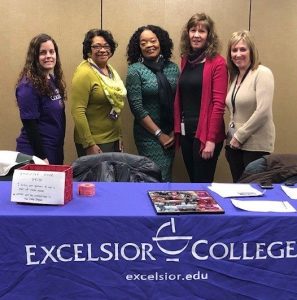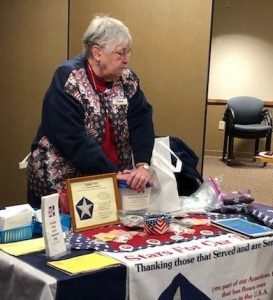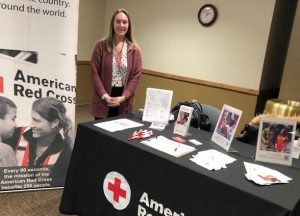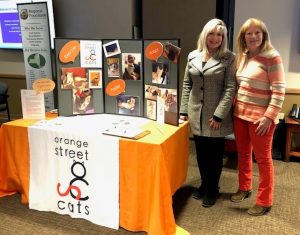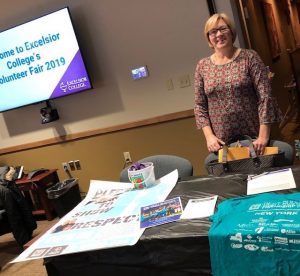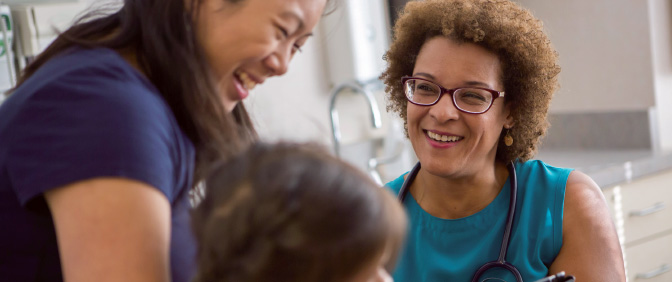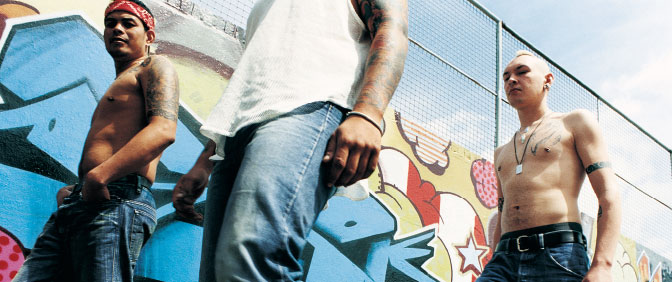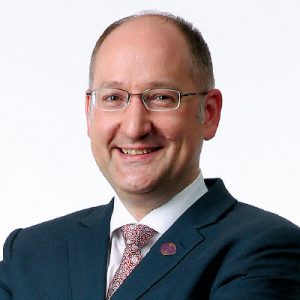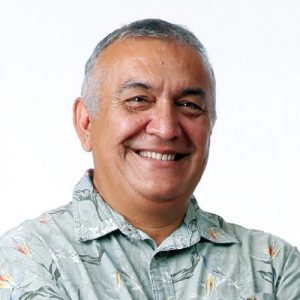Award recipients stand out for their inspiring accomplishments
CHANGING THE WORLD ONE DIVE AT A TIME: TIMOTHY CARLISLE ’86, ’03
C. Wayne Williams Award Recipient
C. Wayne Williams Award Recipient Timothy Carlisle doesn’t let stumbling blocks keep him from his goals or from helping others. He says, “As the Japanese proverb says: fall down seven times, get back up seven. My translation: may your surfaces match your dives.” The former submariner may have had many dives, but he’s always resurfaced better than before.
Carlisle, who has earned an associate degree and two bachelor’s degrees from Excelsior College, is the project director of cybersecurity at SFO International Airport in San Francisco. His job includes project management, technical expertise, awareness training, remediation of audits, and working with third-party penetration testers and assessors, among other responsibilities. His interest in the field stems back to his time in the U.S. Navy, which he joined in 1980. “Since I started in the Navy as a data systems technician, computers and I have been intertwined,” says Carlisle. “I worked with computers as we started putting them on submarines, and wrote a lot of policies, procedures, and operating manuals.”
His current work, like his time in the Navy, requires hard work and dedication. His Navy and submarine background is helpful, says Carlisle, especially when it comes to mechanical trades and fields. “I mean think about: how many computer folks understand how hydraulics work?”
He has also learned to respond to any problem that arises. “When I find a challenge, whether it is my job or not, I find a way to fix it,” explains Carlisle. “Strangely enough, the CISO [Chief Information Security Officer] jokingly refers to me as a Swiss Army Knife, because he knows he can drop me into almost any situation, and I will come out with the answers and a plan of action.”
Carlisle’s strong work ethic and dedication led him to furthering his education in the early 1980s. He came across Excelsior and worked to earn an associate degree in 1986. “If you really care about your education, you will make it happen, even if it takes you several years while living 800 feet underwater,” says Carlisle of the at-a-distance experience. He later earned two bachelor’s degrees with the College in 2003 and has since used his education to give back to others. Carlisle gives credit to Excelsior and says, “I will be eternally grateful…for the founders who had the wisdom and foresight to create such a program so that people like me could have a chance to change themselves and by definition, change the world.”
Carlisle has received several awards and recognition for his time volunteering for various non-profit organizations. His volunteer work includes working with Opportunity Junction, a nonprofit organization that teaches technology and life skills to women; serving as president of U.S. Submarine Veterans Inc. Mare Island Chapter; teaching cybersecurity safety to seniors and children ages 8–14, and coleading a military team that was recognized by the receipt of California’s first National PTA award. Despite the accolades, the most enjoyable part to him, he says, is simply
helping people. “I feel I have been given much,” he says, “and believe that my primary mission in life is to make the world a better place, hence being involved with my family and the communities in which I live.”
DEDICATION TO OTHERS: JESSICA CHEVERIE ’02, ’17
Alumni Service Award Recipient
Jessica Cheverie knew she wanted to be a nurse when she was 16 years old. Her interest in nursing began when she was hospitalized as a teenager. Seeing the nurses in action firsthand inspired her to follow the same path. Cheverie grew up in Connecticut and in high school, she volunteered at St. Vincent’s Medical Center in Bridgeport. After high school, she attended St. Vincent’s College of Nursing in Connecticut, and worked as a home health aide and in hospice care for United Home Care in Fairfield. Cheverie then moved to San Diego and earned her licensed vocational nursing degree from Maric College in Vista, California, in 1999. She earned her associate degree in nursing from Excelsior College in 2002, her certification in case management from the University of California San Diego in 2014, and a bachelor’s in nursing from Excelsior in 2017.
Cheverie has dedicated her life to teaching others to be patient advocates and to give exceptional patient care. Currently, she is part of Scripps Health RN Prescription Refill Team in San Diego, and started Excelsior’s Master of Science in Nursing program with a specialization in informatics this fall. She volunteers with Third Avenue Charitable Organization, feeding the homeless and supplying them with toiletries, clothes, blankets, and other necessities. Alongside Alumni Leadership Council Secretary Sandra Butterfield ’86, Cheverie co-hosts the Shift
Report, a quarterly webinar series presented by Excelsior’s Office of Alumni Affairs that explores issues nurses and healthcare workers face in the workplace.
Cheverie suggests that people who are looking to enter the nursing field should shadow somebody in the field and volunteer at a hospital in the type of unit they’d like to work in someday. She says of nursing: “I like the challenges. I’ve dealt all the way from death and birth…I really got see quite a bit over the years. The biggest thing is really helping other people when they’re
not able to help themselves.” For 12 years, she worked in a busy labor and delivery unit at Naval Medical Center San Diego where she was a neonatal resuscitation instructor, bereavement counselor and instructor, one of the leads in the operating room, and a charge nurse.
Every day in labor and delivery was unpredictable, she says, and so it was critical to work cooperatively with others. “You can’t save people or help people without working together as a team because especially in labor and delivery or in life or death situations, you can’t do it by yourself,” she explains. “When you have a good team, it works out.” Cheverie describes how she collaborated with her peers to determine what they did correct that day, what they could do better, and how they could help each other in the future.
Cheverie’s passion for nursing shows in her dedication to her patients. She believes in “treating patients as if they’re your own family members and to truly listen to them and how they’re feeling and what’s going on with them instead of being biased or judgmental or jumping to conclusions.” Cheverie has taught many new nurses during her time at Naval Medical Center and shares that the most important thing she has told people is to put themselves in their patient’s positions; to think about how they’d like to be treated. Being a patient advocate, she says, is the
most important thing.
DEVOTED TO PUBLIC SERVICE: MEGHAN COOK ’94
Alumni Achievement Award Recipient
Meghan Cook is passionate about public service. As the program director at the Center for Technology in Government (CTG) within the University at Albany, she works side-by-side with government officials, helping them identify new ways for their governments to work together through technology. She knew this work was meant for her early on. “A calling to the public sector felt stronger to me than a calling to private sector type of work,” she says.
She had earned an associate degree in broadcast communications from SUNY Adirondack in 1992 and a bachelor’s in liberal studies from Excelsior College in 1994. She immediately went on to earn a Master of Public Administration (1996) and Master of Science (2002) from the University at Albany.
Cook never thought she would work in the area of IT. But through her courses in public management and through working in internships in government, she realized technology and information play a critical role in delivering public services. At CTG, Cook works with people in all levels of government in the U.S. and all over the world, from top executives and elected officials to those
who carry out the day-to-day operations.
Much of her time is spent facilitating meetings, workshops, and delivering presentations. As a master facilitator, she leads groups from as few as 10 people to as many as 70 people. Most times it is to explore an issue(s) within their organization and develop a plan, solution, or an agreement. “Many times, I’m getting people to understand each other’s viewpoints,” Cook says.
To address the common criticism about the lack of communication between government departments, she helps leaders better understand what each other does and that the information they use could be valuable somewhere else. “I like running the sessions that help people to leave with more understanding and clarity and sometimes even an agreement,” says Cook.
One of her most memorable achievements, she says, was being recognized by the State University of New York (SUNY) with the Chancellor’s Award and also by the New York State Local Government IT Directors Association. Cook says, “These are the people I work to support every day and for them to recognize me and welcome me as part of their community…it means so much.”
Currently, Cook is working on a project with the cities of Schenectady, Amsterdam, Gloversville, and Troy, New York, to help them develop a way to share information across jurisdictions around code enforcement and problem properties and owners. Out of this project came the idea for the joint course between the University at Albany and Albany Law School called Urban Innovation
and Creative Problem Solving. Cook co-leads this experiential learning course where public policy graduate students and law students work to address the problems of blight and vacant housing in those cities.
Cook has lectured for undergraduate and graduate classes for 15 years, but this is the first time she is teaching a class. She says, “I’m giving them tools; I’m giving access to city government; and I’m giving them support and coaching along the way. So maybe [with] all those things together I am teaching them, but really I am creating the environment where they can learn, and that is just what they do.”
“I can’t say that I’ve ever set out to be inspirational. I’ve tried to set a good example,” Cook says, though her students have often written her back saying they have learned so much. In both her class with students and her workshops with government officials, she brings groups together to help them learn, make decisions, solve problems, and achieve their vision. In both situations, it’s rewarding to see them succeed. “They are proud, too, of what they’re able to accomplish,” she says.
THIS NURSE’S LIFE: LEONA KONIECZNY ’82
Carrie B. Lenburg Award Recipient
Leona Konieczny has been in nursing for 43 years. During that time, she has worked in a variety of positions, and no matter what, she’s never let anything get in her way. She has kept learning, kept moving forward, kept getting better.
Konieczny, a 1982 graduate with a Bachelor of Science in Nursing, initially wanted to be a teacher, but at the end of high school, she began working as a nursing assistant in long-term care. Over the years, she has held management positions in both long-term and acute care. In the 1980s, she began teaching, first as a lab teacher, then a tutor, then a clinical instructor, then as
full-time nurse faculty. Konieczny says of the two disciplines, “Nursing and teaching are very purposeful careers. They both offer the option of making a positive difference in someone’s life.”
Konieczny has a real love for travel and a strong belief that people have a responsibility to share their knowledge and resources. Her first foray into travel was on a nursing delegation to South Africa to interact with nurses at clinics and assist with community health care. She describes her time abroad: “It reinforced to me the commonalities that all people have. They have the needs of access to food, housing, love of family, and what I call the pull of the known. People want what is familiar, usually…On the other hand, it showed me that there are many different
ways that people achieve those goals.”
She has led middle school, high school, and university students across the world, to places in Europe, Australia, Costa Rica, and Canada. “It gives me a chance to expose them to global interests — what’s different and how that impacts health,” she says. For example, there is no indoor plumbing in parts of South Africa, which can impact the water supply, sanitation, and thus public health.
Konieczny works at Central Connecticut State University as an assistant professor and RN to BSN coordinator. Two years ago, she came up with the idea to start a Master’s of Nursing in Nursing Hospice and Palliative Care program, and in the fall 2017 semester, it saw its first students. “It has been a labor of love for me to see now what started as an idea in 2015 come about to accept students in 2017. That’s very exciting for me,” she says of the experience.
She has worked not only to further the lives of her students, but also to further her own. Despite work and family responsibilities, she has had the persistence and resilience to reach her goals. She is a prime example of a lifelong learner, having earned her associate degree in the ’70s, bachelor’s in the ’80s, master’s in the ’90s, and doctorate in 2013. “Like many women,
I think it’s an accomplishment to maintain a career and also to have a focus on family,” says Konieczny, who notes her pride in her children, a son who is a lieutenant in the Coast Guard and a daughter who is a hearing specialist.
She recommends students interested in nursing shadow a nurse and be aware of what is required. “Television and movies do not portray nurses accurately at all. We’re not ‘Nurse Jackie’ and it’s not like ‘Grey’s Anatomy’,” she says. But she emphasizes the range of opportunity inherent in nursing. “With nursing, sky’s the limit in terms of varied options and working hours and it
just offers so many possibilities.” In her own career, her continued learning led to a string of new opportunities. As she puts it, “Success breeds success. If I’ve been successful in this, let me expand and try something else.”
